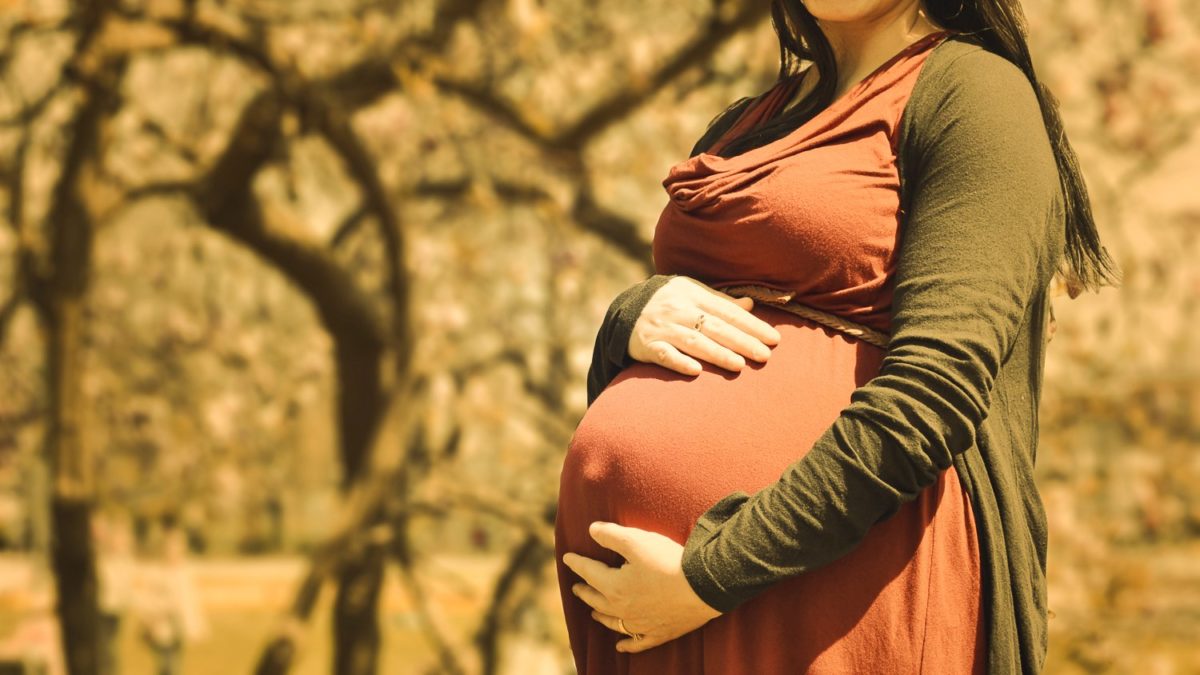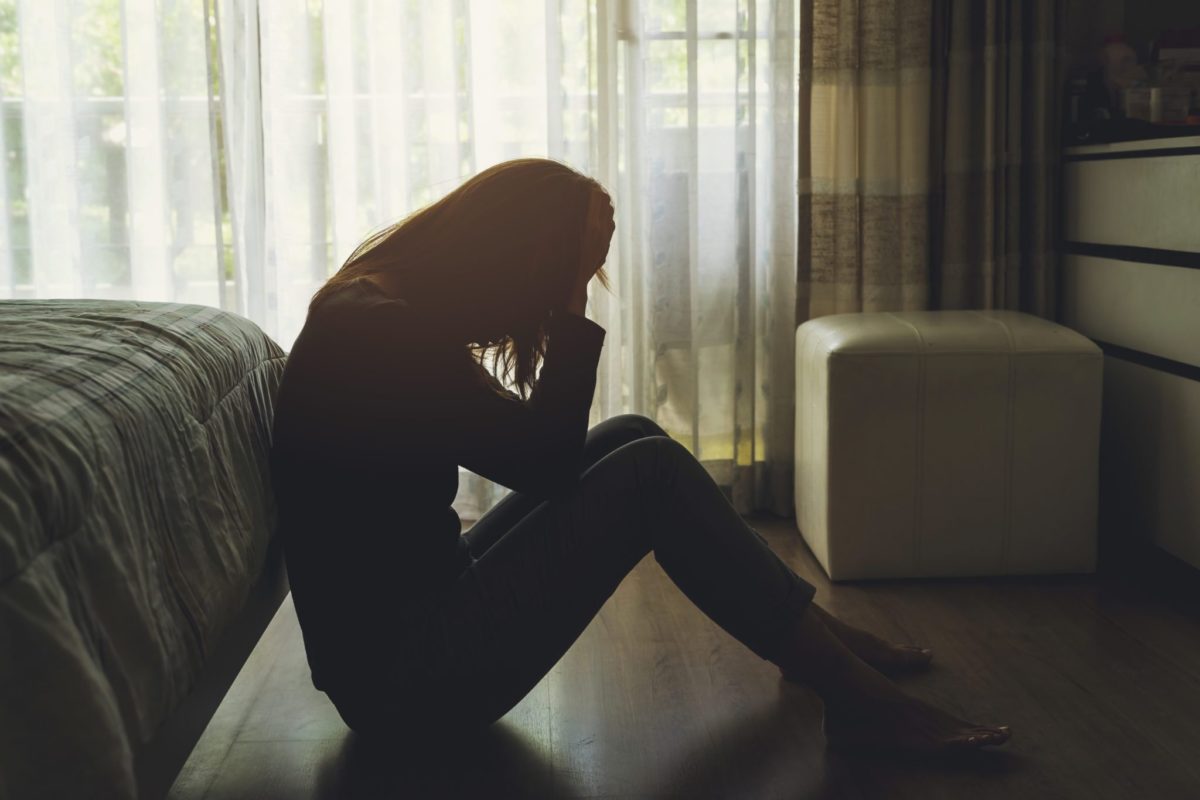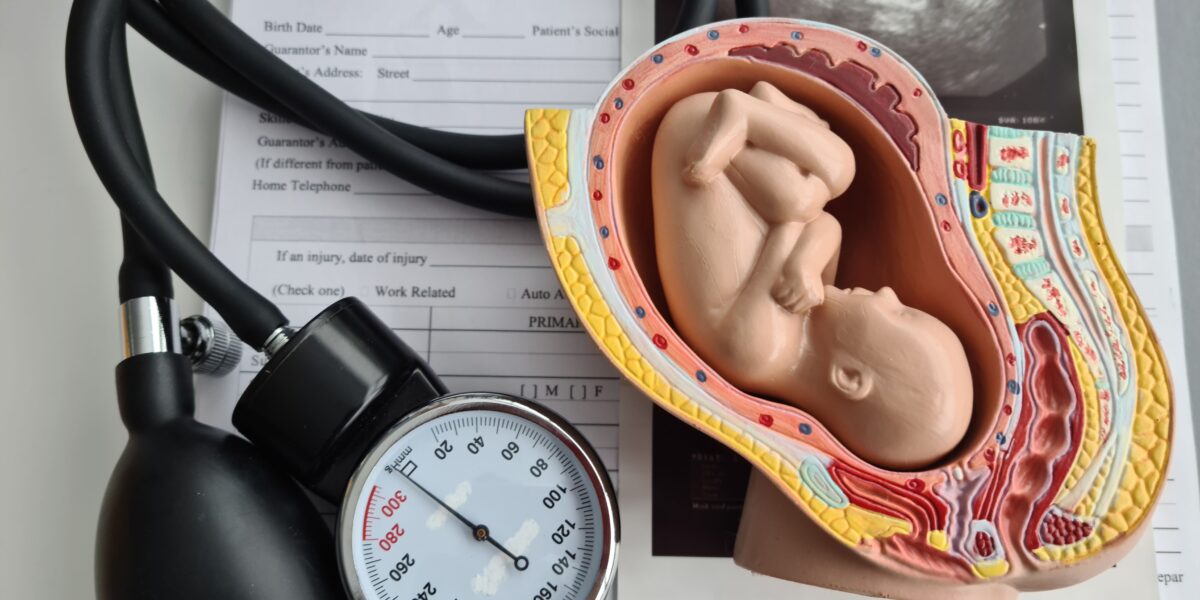Kayley was 23. Her brother had recently passed away unexpectedly, the relationship she was in was falling apart, and having a child was the last thing on her mind. “The immediate shock of looking at a pregnancy test and seeing that it’s positive is, this has to be a mistake,” she says. “There’s no way.”
Sarah was 25 when a summer fling turned into an unplanned pregnancy. “I knew the minute that we conceived that I was pregnant,” she says. “But I was in denial until I took the test. I grew up being a Christian, so I wasn’t allowed to be pregnant.” By the time she took a positive test, the father of her child had been arrested and was in prison. She was on her own.
“I had just turned 24 when I found out I was pregnant,” says Rachael. “I was single.” Rachael had been fighting a battle with alcohol dependence at this time in her life. She was 30 days sober when she took a positive test. “I saw the word ‘pregnant’ and my heart just sank,” she says. “It was a super scary moment in my life. I had no idea what to do. There were so many thoughts going through my head.”
In the wake of New York’s new abortion law, which permits abortion up until the day a child is born, pro-lifers everywhere are crying out “what can we do?” The shock of this legislation has left us reeling and brought up that same old feeling of helplessness that all who long for change know well. We feel unheard and unseen, and what, really, can we do?
I had the privilege of talking this month with Kayley, Sarah, and Rachael. Their stories are beautiful, at times heartbreaking, and none of them without great hardship. These are women for whom the new abortion law would not have made a difference – women who chose life for their children. And through their stories and hard earned wisdom, we can learn a bit about how to make such laws irrelevant.
This, above all else, should be our goal: that no woman is lied to, that no woman is shamed, and that no woman is left alone.
This is what these three mothers had to say about what we can do to support women in the midst of an unplanned pregnancy.
Empower her with Positivity.
For Kaley, telling her mom that she was pregnant was a turning point.
“I just sat there in tears until I could collect myself and then I told her, ‘Mom, I think I’m pregnant.’ She didn’t even take a breath, just walked straight to me and hugged me and said, ‘It’s going to be ok,’ over and over. I just remember that the words ‘It’s going to be ok. We’re going to get through this,’ was everything that I needed at the time. It was like my stability place. I can hold onto these words. This is my solid ground right now.”
If you happen to be with a friend when she finds out that she’s expecting, or are one of the first she tells, this point is especially important. Positivity can look like Kayley’s mom, who immediately countered her fear with stability and steadiness – that everything was going to be ok. Or positivity could look like Sarah’s friend, who was immediately excited for her that she had a life growing in her womb. “I think the fact that she was excited for me actually made me excited,” Sarah says.
The important point here is that life deserves celebration, and mothers need support. It’s OK for a new mom to be sad and scared when she discovers that she’s pregnant if she wasn’t planning on it. That is normal and part of the process. But one way we can support those women in our lives is by celebrating them, being excited for them, and being that voice of hope.
“I think that’s one of the things that was really helpful from the beginning,” Kayley shares. “Everybody that I chose to tell early on, they were all very encouraging, and they didn’t speak poorly, even of Ryder’s dad. You need all the positivity right now.”

Respect her Privacy.
“I remember many people would ask me about my husband, and that was really difficult to answer that question,” says Rachael. All three women mentioned that asking too many questions was a challenge to them throughout their pregnancy. When a woman is in the midst of an unplanned pregnancy it may be natural to wonder what brought her there, but it is simply not appropriate to ask.
“So did you know the father?” This was a question that Sarah says she got a lot and found very hurtful. “I think people were trying to ask, was this a one night stand, was this a boyfriend, or were you raped? But a lot of times the people asking me weren’t close friends,” says Sarah. “I’m not going into that story with you. It left me wondering about people’s perception of me.”
Unless you are a mentor, immediate family member, or best friend, you don’t need to know. Your respect of the mother’s privacy might is something she will appreciate and that will make her feel supported instead of judged.
Affirm her Motherhood.
When Kayley first discovered that she pregnant, she was with the father of her child.
“He immediately said, ‘Ok, we’re going to Planned Parenthood.’ There was no asking me, it was straight to – ‘ok, I’ll pay for this. This is what we’re doing.’”
For Kayley, abortion wasn’t an option. But in that moment she felt like she didn’t even have options. As the mother, her feelings and desires should have been immediately sought out, but instead they were shut down.
“Hearing that, it felt like I didn’t have a choice,” she shares.
Unfortunately this experience is all too common for women in unplanned pregnancies. Our society seems to only grant maternal privilege to women who got pregnant on purpose. But all mothers everywhere need to be supported and validated in their role as mothers in order to properly care for their children. And whether or not to continue a pregnancy is only the first of many decisions that a mother has to make. Will she parent or place her baby for adoption? If she does parent, will the father be involved? What kind of birth experience does she want to have? How will she manage work and childcare? But our culture is so quick to tell single mothers that they aren’t up to the task.
Sarah relates the struggles she faced in finding a doctor that was willing to work with her preferred birth experience.
“I kind of felt like in the whole situation, and even sometimes now, that I’m not really allowed to have a voice because I’m doing it by myself,” says Sarah. “So the people who were asking me like, ‘we want to hear what you think and what you want to do,’ that was really helpful for me.”
How can we affirm someone’s motherhood? Tell them they can do this. If there are single mothers in your life, remind them what a great job they are doing. And remember, these mothers know a lot! They would be wonderful sources of wisdom if you are considering starting a family or have questions about motherhood and parenting. Treating these mothers like the authorities they are on their children and on parenthood is a great place to start.

Be her mentor or point her towards one.
All the women above mentioned the importance of having a mentor or small group of people who were their 24/7 support system. It was such a strong theme of their experience that I would be remiss to leave this last point out. It won’t be relevant to everyone, but to those for whom it is – it may be the most important.
Rachael’s mentor was the first person she talked to when she found out she was expecting. She led her to the pregnancy resource center that confirmed her pregnancy and helped her get the prenatal care she needed.
Kayley’s mentors were her parents. When her significant other wanted her to get an abortion, they countered that with unconditional love and hope for the future.
Sarah’s mentors were her boss, family, and close friends. They expressed immediate enthusiasm for the life in her womb and supported her at every step.
If a close friend or family member is facing an unplanned pregnancy, maybe you can be part of this support team for them. Maybe you are even already in that mentor position. If you are not that close of a friend, but still find yourself in a supportive role where your input is welcome, you can encourage the mother to find those people.
“I think it’s just really important that you have someone that you can go to that you know isn’t going to make you feel judged at all but is just going to wrap their arms around you. Someone that can be clear minded when you can’t be in that moment,” says Kayley. “Find someone you can trust and care about, that you know wants the best for you. Ask them to help you to see everything that you can’t see in that moment. I think that’s something that’s really important.”
Rachael’s words express well what every single one of these women had to say about their lives today.
“For me to look at my daughter now – I just can’t imagine my life without her now. She’s just this beautiful, full of life, full of joy little girl. And I just wonder where my life would be if I would have chosen to have an abortion or give her up for adoption. I just feel like my life would be a lot less full.”
We live in a world unfriendly to motherhood – in which pregnancy and parenthood are an irritating blemish on our cult of sexual freedom. To be pregnant in your early twenties at all can have people looking at you sideways – not to mention being without a partner.
So when we say we want a pro-life culture, that starts with a pro-mother culture. Pro-all-mothers. This is where we can start. This is what we can do.













